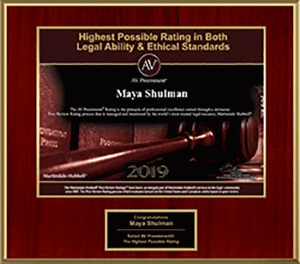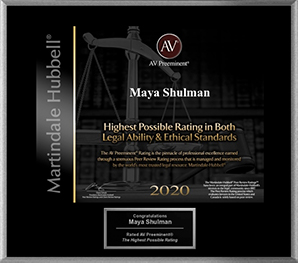Resolving Divorce Out Of Court
Dissolving a marriage is naturally a stressful process. Many people find the adversarial experience of going to court to get divorced exacerbates bad feelings in an already-difficult time and can result in ongoing tension in their post-divorce life. Collaborative law, an alternative to litigation or mediation, offers divorcing couples an opportunity to engage in a voluntary out-of-court process to craft a divorce settlement that takes both parties’ perspectives into account.
How Is Out-Of-Court Law Different?
In out-of-court divorce, both parties are represented by attorneys trained in this method of resolving legal issues. Participants must sign an agreement committing to the process, removing the threat of litigation from the proceedings. Nobody sits in judgment over the process and makes a decision for you. The settlement is crafted by the participants, not handed down by a judge or arbitrator.
The role of the attorneys is to represent their clients’ interests, supporting and advising them as to their rights, while taking care not to heighten any existing tension as they work toward agreement. All information is shared with full transparency between both parties in order to amicably work toward a settlement.
Additional professionals, such as financial specialists or family relations counselors, can be brought into the team as needed to work impartially with both parties to advise on financial and custody matters.
Understanding The Benefits Of An Out-Of-Court Divorce
Out-of-court divorce offers several advantages over a traditional litigious approach to divorce. First, the final settlement reached is just as legally binding as a court order but keeps control of the process in your hands rather than leaving it up to a judge who is unlikely to be able to delve into your family’s case in the depth required for a detailed resolution to every issue. Each party’s perspective is heard and considered in order to craft solutions that are in the best long-term interests of both spouses and children.
Second, avoiding court means that you are able to keep your private information out of public court records. This process offers you the opportunity to keep your personal affairs and those of your family out of the public eye.
Third, the out-of-court process is conducted at your own pace, which can allow you to reach a settlement far faster, and at less expense, than going to court. Moving on with a mutually agreed-upon plan to fit the needs of all parties can allow families to move past the pain of divorce quickly and into a better future.
Let Us Review Your Situation
The legal team at Shulman Family Law Group is prepared to review your situation and help you determine if the out-of-court divorce process makes sense. Call 818-222-0010 or use our online contact form to schedule a meeting.






